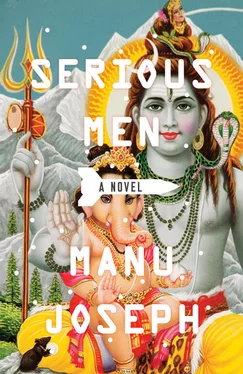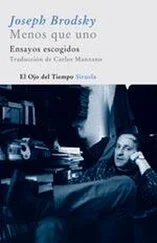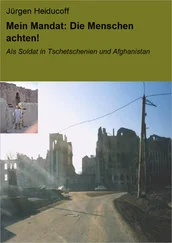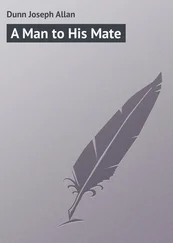Acharya had heard these objections a thousand times, but there was something he knew which made him certain that Libet had stumbled upon a mystery that lay at the very heart of science. Oparna saw in his eyes an opaqueness, a grim unchangeable faith that would have normally exasperated her, but now, in the darkened lab, it almost convinced her that Libet was probably not so bad.
‘What were you doing with Libet, anyway?’ she asked. ‘Weren’t you busy demolishing the Big Bang then?’
‘When I heard what he was trying to do, I got curious,’ he said. He looked at her. ‘Oparna,’ he said, ‘when I told you that I have not told anyone this, I was not referring to my connection with Libet. It’s something else.’
She pulled herself closer to him. ‘What is it then?’ she asked.
‘Something happened when I was about nine years old,’ he said. He tried to sit up, but the floor was slippery in his sweat. She helped him, and he sat resting his back against the foot of the main desk. ‘I was walking with my family to the circus. The car wouldn’t start that day, and father said that since the circus tent was just a kilometre from home we should walk. There were a lot of us on the road. We were a big family. My mother had a box of groundnuts and she kept putting a heap into my palm. Suddenly, my mind went blank and I saw clearly a dwarf in a red T-shirt and white shorts. He was sitting on an elephant. A blue bird flew over his head. Then he fell off the elephant and was trampled. I saw this in my mind. My mother was walking by my side. I told her what I had seen. She smiled at me and ruffled my hair. “Don’t worry,” she said. When we entered the tent, I saw it was packed but the front seats were reserved for us. Everybody looked at us as we walked through the aisle and sat on the best seats. I sat between my parents. I wanted to feel safe because I knew what was going to happen.
‘In the middle of the show an elephant walked on to the stage with a dwarf in a red T-shirt and shorts sitting on top of it. I looked at my mother. She was looking at me as though I were playing a trick on her. She was trying to figure out how I could have known. She pinched my thigh and whispered, “You sneaked in here yesterday? Tell me, I won’t tell your father.” A small blue bird appeared from nowhere and flew in a panic over the audience. Everybody howled because it was so beautiful. It flew over the head of the dwarf and disappeared through a small hole in the roof. The dwarf then fell off the elephant. The elephant had not shaken him off. It was calm. It was not afraid, nor had it gone mad. As though part of the show, the elephant then walked over the dwarf. It put its leg on his chest. I saw the dwarf’s head rise for an instant and then fall. He died there on the floor. There was a commotion and everybody tried to run out. I remember my mother’s face. She looked at me in fright. When we returned home she told my father about what I had told her. He didn’t believe her or me. Then, somehow, the incident was forgotten. My mind never went blank like that again. I have never seen the future again. But something in me changed that day. And I have remained the same after that.’
Acharya’s mind, in the trance of recounting an event from his childhood, stayed in that distant time. He remembered other images. The steam trains that bellowed beneath the footbridge, the stiffness of his starched shirt, his mother’s safety-pin that sometimes held the fly of his shorts, the dragonflies in the paddy-fields to whose tails the boys tied a thread and used them as live kites. How the girls disapproved of this. And how they cried when the boys told them that soon it would be the fate of butterflies too. The final journeys of the dead, their noses stuffed with cotton, their faces yellow, the seriousness of the mourners on whose shoulders went the bed of the corpse or the decorated chair in which the dead sometimes sat so comically. The sunlit courtyard of his childhood home, its clean chessboard floors, the huge immovable doors and those carved wooden pillars that were more ancient than ghosts. And the narrow enchanted lane outside which ran through the shadows of other huge benevolent homes that could only be inherited now and never built. On their tiled roofs peacocks that had no masters used to stand still. Once, that was his life. And it all came back to him.
‘So God has just been playing an old film all this while?’ Oparna said. There was another question on the tip of her tongue, a more serious question, but she felt a little foolish articulating it. ‘Why do you think there is life?’ she asked, somewhat sheepishly. A naked woman sitting beside a naked man and asking, ‘What is the meaning of life?’ It was like a terrible moment from a porn film that aspired to be art. Yet she wanted to know what he had to say.
‘I have a hypothesis,’ he said, and the word ‘hypothesis’ made her arch forward and laugh, her loose hair falling over her face. He took it sportingly. He laughed too. ‘I have a hypothesis,’ he said again, and looked at her eagerly in the hope of making her laugh one more time. Then his grin slowly narrowed until it vanished entirely.
‘Through life, the universe saves itself the trouble of making whole star systems by concentrating vast amounts of energy as consciousness. Why make a Jupiter, when you can just create a frog.’
‘Jupiter and a frog have the same energy?’
‘I think so.’
‘That, Dr Arvind Acharya should never say in public.’
‘Of course not.’
She put her head on his shoulder. There was something healing about this closeness that reminded her of all her wounds. What this man had told her about his childhood and his interpretations of what it all meant should have shaken her. But somehow she imagined that only he could be a part of this spring-toy universe where everything unwound in an inescapable, preordained way. Absolute truth was a gloom that happened to other people. Like him. It suited him. She could imagine Arvind Acharya, in the long pursuit of truth, wading through star systems across the aeons, trying to crack the game of life. The universe comprehending itself through him more than it probably did in other men. Now, after covering the vast stretch of space and the interminable ages, here he was by her side as a tired journeyman, to stay at this fortuitous crossing just for a fleeting night and proceed again on his solitary quest. So lonely he seemed. And then she felt a strange fear. It was the fatigue of loving another ephemeral lover. She did not want this one to leave.
When she finally found her watch on the floor, it was three in the morning. ‘I have to go now,’ she said. And they groped for the pieces of clothing that were strewn all over the floor. She crawled on the floor and searched under the tables for her hair-band. ‘There you are,’ she said, when she found it under a chair. She pulled her hair back and secured it in the loop.
He observed her as she put on her bra, very deftly, he thought.
‘It is the ugliest word in English,’ he said, ‘Bra: it sounds terrible.’
‘Be more sensitive,’ she said. ‘Oprah Winfrey says that 85 per cent of the women in the world live in the constant discomfort of wearing the wrong-sized bra.’ And she said in a mock concern, mimicking someone he probably did not know. ‘Poor women. We have to survive men, succeed in our professional lives and maintain good homes, and do all that in the wrong-sized bra.’
‘This one seems to fit you well.’
‘No, no, no,’ she said, with a grimace. ‘It’s horrible. My ambition is to live in a decent country where a woman does not have to wear a bra.’
‘You should have stayed back in Stanford.’
‘But, you know, I cannot live without maids,’ she said.
Читать дальше












